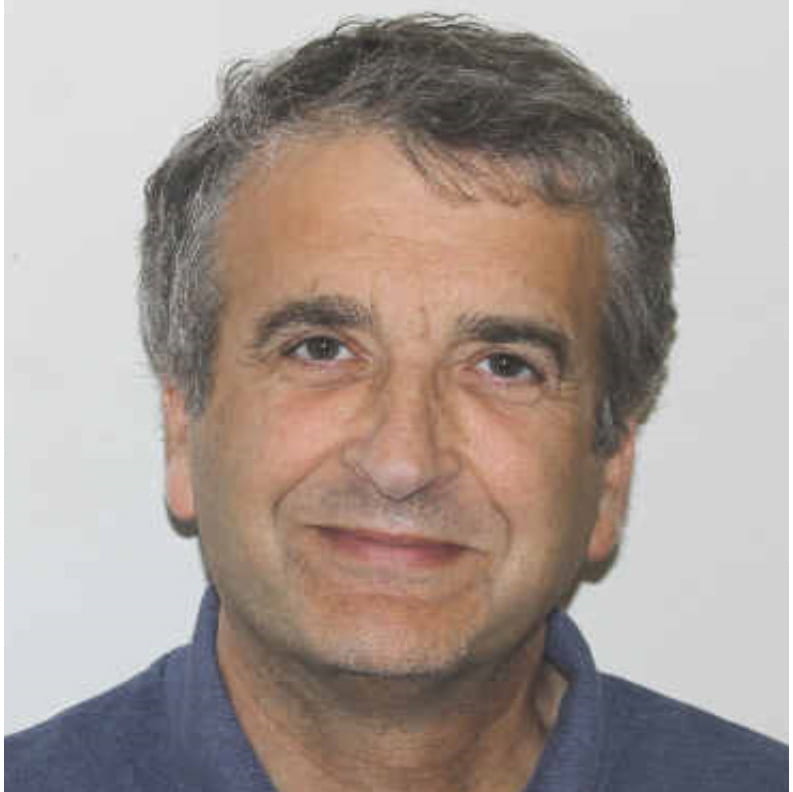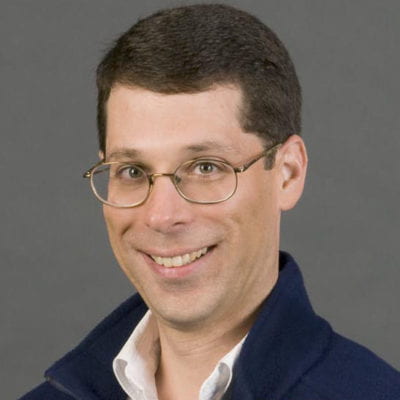ABOUT
The Institute for Future of Computing (IFComputing) aims to investigate novel and emerging computing paradigms, architectures, and physical fabrics that can significantly improve functionality, security, and sustainability of today’s computing systems.
The institute led by Professor Massoud Pedram and Professor Joshua Yang comprises faculty and researchers from the Ming Hsieh Department of Electrical and Computer Engineering, Department of Computer Science, and Information Sciences Institute at USC, as well as prominent researchers from government, industry and other academic institutions.
The approach of IFComputing is mission and application driven, including: applications in information processing, bioinformatics, medicine, and artificial intelligence. Emphasis is also placed on investigating the impacts of these technologies on the environment, people, and the society as a whole.
Mission
The mission of the Institute for Future of Computing is to explore and harness new computing paradigms, architectures, and physical fabrics that will be significantly more functional, secure, and sustainable compared to today’s computing solutions in order to enable challenging new applications in information processing, bioinformatics, medicine, and artificial intelligence while investigating the impacts of these technologies on the environment, people and the society as a whole.
DRIVERS
- End of Moore’s law – need to ensure US leadership in nanoelectronics and AI
- Security and Privacy concerns, trusted computing
- Energy efficiency and sustainability
- Distributed computing and connectivity requirements (low latency compute on the edge)
- Trained workforce
Opportunities
- Emerging revolutionary new devices for both computing and storage: 2D material, nano-photonics, SFT, TFET, MRAM, magnetic nanowires, ferroelectric-based devices, memristive devices, etc.
- Multitude of beyond-CMOS circuit fabrics: in-memory computing, approximate computing, neuromorphic computing, cryogenic superconductive electronics, etc.
- New ultra-custom architectures suited to the target application needs: systolic arrays and vector processors, ultra-low-power embedded systems, domain-specific architectures
- Emerging class of applications: homomorphic computing, precision medicine, AI on the edge
RESEARCH
Technologies
Non-Von Neumann Computing
Application-specific non-Von Neumann computing implemented in conventional electronic hardware can result in orders of magnitude reduction in energy efficiency for data-centric problems, often found in Machine Learning and Artificial Intelligence. This, in itself, justifies study of a hardware customization approach to the future of computing. Heterogeneous hardware that exploits new degrees of freedom in beyond-CMOS device design such as multi-level states, analog behavior, nonlinear dynamics, spin-wave logic, and phase change phenomena may lead to an even higher efficiency and intelligence level.
3D Heterogeneous Integration
To enable a paradigm shift in the computing hardware technology, future development in hardware foundations is likely to feature two critical approaches: i) 3D integration and ii) heterogeneous integration. First, instead of today’s chips, which build all the active devices on the wafer surface and only have passive interconnects in the upper layers, future computing chip fabrication will extend active device integration to the third dimension for enhanced component density per chip area and interconnection bandwidth. 3D integration is a natural way to increase the device density. More importantly, it’s the only way to enhance the device connectivity and reduce the communication loss, which are essential for complex neural network hardware. Heterogeneous integration will enable multi-functional chips that can replace the more cumbersome multi-chipsets being used today.
Secure and Private Computing
Secure and guaranteed private computing, which is of prime importance to a world dependent on trustworthy, secure, privacy-protecting distributed systems for commerce, defense, social networking, and entertainment. It is critical to adopt a holistic, system-level perspective that integrates human context, application, software, and hardware into a single, collaborative, unified research framework, and that treats privacy, security, and trustworthiness as first principles within the larger computing domain.
Approximate
Computing
Approximate computing improves performance and efficiency by allowing some errors and inaccuracies for machine learning applications. Different from the brain, conventional computing does not allow errors because of the sequential processing of executing programs. While statistical machine learning applications tolerate certain levels of errors and inaccuracies, which can be used as a tradeoff for a better efficiency in the future of computing.
Graph Analytics and Machine Learning
It has become a promising approach to analyze big data in a graph format using data points as nodes and relationships as edges to determine pairwise relationship between two objects at a time and structural characteristics of the graph as a whole. Graph analytics has also been closely related to machine learning. For instance, it directly offers a unique set of unsupervised machine learning methods. Acceleration of graph analytics and machine learning at both algorithm and hardware levels is an important research task for the future of computing.

Thrusts and THEMES
COMPUTING FABRICS
This thrust addresses research and development of new materials, devices, and circuits that would fundamentally enable the new computing models and platforms. Examples include investigation of compound semiconductors, topological insulators, metamaterials and metasurfaces, plasmonic material and plasmonics, 2D materials, nanomaterials growth, and development of CNT-FET, Tunnel FET, Graphene FET, nanophotonic devices, Josephson junction devices, CMOS Millimeter-Wave and Terahertz ICs, magneto-resistive devices, synthetic DNA, bio-nanotechnology, and so on
Affiliated faculty: Electrical and Computer Engineering, Information Sciences Institute
COMPUTING PLATFORMS
This thrust aims to explore and deliver on opportunities in designing new and potentially disruptive hardware/software platforms and the corresponding computation, storage, and communication architectures (e.g., many-core processing fabrics, structured ASICs and complex FPGAs, hybrid opto-electronic fabric, embedded system-on-chip designs, neural networks, ultra-low-power embedded systems, cyber-physical systems, and advanced sensing and actuation systems) in support of the evolving new computing paradigms.
Affiliated faculty: Electrical and Computer Engineering, Information Sciences Institute
COMPUTING PARADIGM
This thrust focuses on computing paradigms, which refer to new and potentially disruptive models of computations and alternate methods of performing computations. Examples include analog, neuromorphic (brain-inspired), in-memory, quantum, secure distributed, molecular-scale (DNA-based), time-domain, optical, hyperdimensional, stochastic computing paradigms.
Affiliated faculty: Electrical and Computer Engineering, Information Sciences Institute
SOCIETAL IMPACTS
This thrust investigates the principles of sustainability, characteristics and goals of a sustainable society, including sociopolitical, economic, and ecological ones, and the expected impacts as well as unplanned consequences of new computing technologies on the sustainable society over the short, medium, and long term.
Affiliated faculty: USC Dornsife College of Letters, Arts, and Sciences, Price School of Public Policy, Marshall School of Business
PEOPLE
LEADERSHIP
Research interests:
- Energy-efficient computing – Computer-aided design, Low power design, Embedded systems
- Hardware design – Approximate hardware, DNN accelerators, Homomorphic encryption
- Superconductor Electronics – RTL/logic synthesis, Place&Route, Timing and margin analysis
Research interests:
- Neuromorphic / Synaptic computing using memristive devices with diffusion dynamics to implement neuroscience principles
- Hardware accelerators to efficiently implement Artificial Intelligence and Machine Learning using analog resistive switching devices
- High performance Non-volatile memories using emerging materials and devices
Member
Research interests:
- Low Power Design
- Approximate Computing
- Neuromorphic Computing
- HW/SW Co-design
- Reliability in nanometer designs
Technology Advisors



Participating USC Faculty
Machine Learning and Graph Analytics:
- Keith Chugg
- Eun Sok Kim
- Leana Golubchik
- Viktor Prasanna
- Xuehai Qian
- Murali Annavaram
- Peter Beerel
Devices and Circuits:
- Chongwu Zhou
- Rehan Kapadia
- Mercedeh Khajavikhan
- Mike Chen
- Joshua Yang
- Han Wang
Quantum Computing:
- Daniel Lidar
- Todd Brun
- Itay Hen
- Federico Spedalieri
Non VonNeumann Computing:
- Joshua Yang
- Ajey Jacob
- Wei Wu
- Chia Wei Wade Hsu
- John Wroclawski
Secure and Private Computing:
- Pierluigi Nuzzo
- Massoud Pedram
- Matthew French
- Andrew Schmidt
NEWS
USC/ISI will hold the first Symposium on the Future of Computing Research. Its goal is to examine critical questions that will drive and define the field and profession of computing research in the future, and to contribute meaningfully to the ongoing conversations shaping this rapidly developing evolution. (ReadMore)


Professor Pedram is awarded a subcontract from DARPA MTO to develop next-generation homomorphic computing solutions, 2020.
A half-day workshop at ISCA 2022 will focus on the DISCoVER Expedition and its research agenda with invited speakers covering various topics from superconductive devices to systems (Read More).


Professor Yang gives a short course in 2021 VLSI-TSA on “AI-Devices to systems: Resistive Switching Materials and Devices” for Bio-Inspired Computing in April 2021 (Read More).
Professor Pedram is awarded a subcontract from DARPA MTO to develop next-generation homomorphic computing solutions, 2020.


Professor Yang receives an NSF ASCENT award to develop 3D memristor convolutional kernels with diffusive memristor-based reservoir for real-time machine learning, 2020.
Professor Yang is awarded an AFOSR MURI project to develop Brain-inspired networks for multifunctional intelligent systems in aerial vehicles, 2019.


Professor Pedram receives an NSF award to develop an energy-efficient neural network accelerator, 2019.
Professor Pedram is awarded an IARPA SuperTools program research funding for developing design automation technologies and tools for VLSI integration of Superconductor Electronics, 2017.





